- Home
- Benjamin Wallace
Post-Apocalyptic Nomadic Warriors
Post-Apocalyptic Nomadic Warriors Read online
Post-Apocalyptic Nomadic Warriors
A Duck and Cover Adventure
By Benjamin Wallace
Copyright © 2011 by Benjamin Wallace
All rights reserved.
Cover design by Crystal Roznik.
This is a work of fiction. Names, characters, places, and incidents are the product of the author’s imagination. Any resemblance to actual persons, living or dead, events, or locales is entirely coincidental and, frankly, kind of embarrassing for you. Especially if you’re anything like Carl.
For my wife and kids.
Thanks for understanding.
Prelude
Even a mushroom cloud has a silver lining.
No one ever sees the good in an apocalypse. And that’s understandable. A lot of bad things happen when the world blows up. But then it’s all crying about the loss of family and the failure of our society, “Waaah, waaah, waah, what have we done?”
Sure, there’s that. But what about the good things brought about by the end of the world? Global warming? It’s no longer a problem. And with no more global warming, there are no more whiny hippies.
True, it’s not all green trees and dead hippies. There are real dangers out there: toxins, disease, big scary bears that have mutated to become bigger and scarier.
But here—here in the walls of your city—lies hope. Look around. You’ve already overcome so much. You’ve beaten the elements. You’ve provided food for an entire community. You’ve managed to live together without killing one another or being annoyed by the stink that most of you are putting off.
And, there in that willingness to turn your nose, not up in the air, but towards your funky smelling brethren, lays hope. Hope that we can rebuild this world. Into a braver world, a saner world—a braver world that’s much more sane.
A world where no child need cry for dinner. A world where no child need cry because he is afraid. A world where no child need cry because you didn’t buy him that ring pop at checkout, even though you know that he’ll never finish it and it will just end up a sticky mass of carpet lint and hair somewhere under the seat of the car. A world where no child need cry for want of shelter or love. A world where that child will finally just shut his cake hole.
This is your chance to make the world the way you want it to be. A loving world. A free world.
Are you going to surrender this chance? God, or Russia, or somebody, has seen fit to wipe the slate clean. Now we can apply what we know not to do to make a better world for our children—their children, and their children, and maybe a few generations beyond that.
You’ve already assumed the right to govern yourself, the responsibility to function under a social contract that apparently didn’t mandate bathing.
You are now free men and women. Are you going to let these men that gather at your gates take that from you? Just because they’re stronger? Just because they have an army of merciless killers? Just because they armed that army with chains and blades? And harnessed the power of the mighty and noble buffalo and turned them against you as the menacing war bison? Are you? Or do you accept this responsibility, this glorious burden, to wrestle from these ashes of mankind a better kind of man?
Stand. Stand against this threat. Stand with your heads held high—for you are the true possessors of this world’s future. Stand proud. And I will stand with you.
This is our world to rebuild. Not theirs. Ours. So, let’s not fuck it up.
- The post-apocalyptic nomadic warrior from a speech given at the gates of Eternal Hope, Colorado, moments before the Massacre of Eternal Hope, Colorado.
ONE
Jimmy Edwards had touched his first breast in the big steel barn that stood in the middle of the North Texas prairie. It was a girl’s breast; it had belonged to Susan Gilmore, and the contact had been purely accidental.
The two had been playing tag at a birthday party. Jimmy was it and Susan ducked into the barn with the boy close behind her. Giggling as she ran, she tried to decide if she was going to let the boy catch her. She thought he was cute, so her plan was to pretend to let the boy corner her and, maybe, just maybe, let him tag her a couple of times here and there.
Her plan had not accounted for the wasp. As she rounded the corner into the barn, it buzzed so close to her face that she would swear she could feel the air from its wings on her nose.
Squealing, she turned to run away from the yellow and black threat.
Jimmy, his arms outstretched, was not prepared for her sudden turn. His young hand filled with boob. A brief moment of realization overcame him and he smiled just before his head collided with Susan Gilmore’s face, bloodied her nose, and knocked her to the cement floor of the big steel barn.
Apologies spewed from his lips as he tried to help her up, but Susan Gilmore had decided that she didn’t like Jimmy anymore and she slapped away his hand. Gripping her nose and tilting her head back, she ran off to find her mom.
Jimmy stared at his hand in amazement. He vowed never to wash it again.
Through sputtering gasps, Susan told her mother about the wasp and the collision that had bloodied her nose, probably ruined her looks, and threatened her future social life.
Jimmy found his friends and told them about the boob.
For many years the boob touching and nose breaking were the most noteworthy thing to ever happen in the big steel barn. Then the world blew up.
After the apocalypse, the barn transitioned from a mythical location that had grown infamous through playground lore into the administration building of the town of New Hope.
Weddings, baptisms, elections, chili contests, and more soon trumped the tag incident as the most important event to occur in the building.
A democracy had been formed in its now sacred walls; a constitution was written and ratified. This social contract between three dozen citizens had been put into print, signed, framed, and hung on the wall conveniently covering a verse of Sharpie scrawled graffiti that read, “Jim was it, grabbed a tit, Susan threw a big fit.”
From that day on, all town business was conducted in the big steel barn.
“Vocation?”
“Post-apocalyptic nomadic warrior.”
“Nomad,” the man said to himself as he scratched at a piece of paper with the nub of a pencil.
“I’m sorry. I didn’t say nomad. Post-apocalyptic nomadic warrior.”
“What’s the difference?”
“It’s a pretty big difference.”
Roy Tinner was a balding man and refused to admit it. He sat on the town council and had volunteered long ago to interview any visitors that may wander into the gates of his fair town. Though small in stature, and more than a little heavyset, he viewed himself as the first and best line of defense the town of New Hope had against the threat of immigrants, idiots, and those that happened to be both.
“Fine, I’ll put nomadic warrior.”
“But, that’s not it. It’s post-apocalyptic nomadic warrior.”
Roy looked up from the handwritten form. “Look. You can’t have a time reference in your vocation.”
“Yes, I can.”
“Who does that? No one does that. Farmers don’t call themselves pre-winter harvesters. There’s no point. A farmer is a farmer whenever he’s a farmer. Same with a nomadic warrior or … whatever.”
“I’m not a farmer, good sir. I could have been a farmer. I could have been anything: a water purifier, gasoline refiner, scavenger, hunter, gatherer, post-apocalyptic dentist …
“But, I chose to be a post-apocalyptic nomadic warrior. And, in doing so, have mastered the skills necessary to survive the mutants, toxins, gangs, and other dangers in the wasteland. I can survive in
the Great Western Wastes, the Poisoned Pacific Northwest, or Detroit.
“I have studied weaponology, mechanics, electronics, and engineering. I can weld and shoot straighter than most any man.
“I have studied psychology, strategy, and Dale Carnegie.
“It’s for all of these reasons and more that I ask you to, please, list my occupation as post-apocalyptic nomadic warrior.”
The apocalypse had bred a tremendous amount of weirdoes and Roy Tinner had met his fair share. Many had genuinely gone crazy dealing with the devastation and loss of family and friends. Others had seen the world-ending event as a chance to start over, redefined themselves, and created a life they could never have achieved in a civilized society.
Some claimed to be celebrities; if they didn’t resemble the famous person they would claim that they had been disfigured by one of the many agents used in the warheads.
A few claimed to be royalty, declaring themselves kings or queens to vast swaths of land or states if not the country or continent.
The man who sat before him, however, was not trying to make such a claim. This nomad that sat before the councilman believed every word he had said. Etching on his duster was proof of countless days spent in the wasteland—the canvas was frayed by nights spent on rock and rough ground. Calloused hands told of a life of physical labor. A sharpness in the nomad’s eyes convinced the councilman that the man in front of him was not crazy.
Conviction, not pride, had prompted the man before him to request the title. The councilman could see that. Like the master mason or the decorated soldier, it was respect that this man was looking for. Respect, not for himself, but for the craft he studied. An acknowledgment to the dedication, the thousands of hours spent mastering the skills that defined his ilk was all he sought. The recognition was not only for himself, but also for others in his trade.
Raising a soiled handkerchief from the desk, the councilman dabbed at the sweat on his brow as he studied the man. Roy could respect the nomad for making a fuss over the entry on the form—but he didn’t have to.
Roy picked up the pencil and began to write, “Nomadic Warrior.”
“You can’t spell apocalyptic, can you?”
“Of course I can spell apocalyptic! We’ve all been living in a post-apocalyptic world for seven years now. You don’t think I’ve had to write apocalyptic over and over again?” He looked back to the paper and paused.
“A-p-o-c-a-l-y-p-t-i-c.”
The councilman took a deep breath and scribbled furiously, “… alyptic nomadic …” he trailed off and finished writing the full occupation, curving the last few letters of ‘warrior’ up the edge of the page to fit.
“Name?”
“That’s up to you.”
“I beg your pardon?”
“Well, not you per say. The town.”
“What are you talking about?”
“The first rule of being a post-apocalyptic nomadic warrior is that you don’t have a name. Eventually, the people I help will give me a nickname, never wanting to know the real me.”
“What?”
“That’s okay. It makes writing the folklore easier.”
“That’s ridiculous.”
“No, it’s not. All post-apocalyptic nomadic warriors don’t have names.”
“Sure they do.”
“No, they don’t. Did the man with no name have a name? No, he didn’t. What’s-his-face didn’t have one either. Neither did the stranger.”
Before the apocalypse, Roy Tinner’s blood pressure had been high, a condition the doctors had attributed to overeating and overreacting to just about everything. Even though the doctors vaporized, melted, exploded, rotted, or had been eaten, like most of the world’s population, he felt it was best to behave as though his stress levels had not been reduced since the sweeping destruction of society and man.
Relaxing had never come easy to him, but he did his best to ease the muscles in his neck and smiled at the infuriating nomad. “Well, what should I write down?”
“Just leave it blank. You can fill it in later once I’m given a nickname.”
“I’m thinking of one right now,” the councilman muttered as he struck a line through the field on the form. “And why do you want to become a citizen of the town of New Hope?”
“Oh. I don’t want to be a citizen.”
“Then what are you doing here?”
“The way it usually works is that I help out a bit: fix crops or irrigation systems, help out rebuilding things, that kind of stuff. Then, someone will get sick or hurt. I’ll come through, against impossible odds, endear myself to the town, get the girl, and be on my way.”
An image of the nomad hitting the ground, face first, outside the gates of the town flickered in his mind and generated a genuine smile across Roy Tinner’s face. Seeing it happen would be easy enough, but the mayor wanted the nomad here.
Frustration drove the huff from Roy’s plump lips; he grabbed the form from the desk and tore it up.
“Is there a problem?” the nomad asked.
Tinner grunted as he pushed himself away from the desk. The squeaky protest of a broken caster rang out as the chair rolled back a few feet and ground to a sudden halt. Inertia tried to topple the heavyset man from his seat when the office chair came to a jarring stop. Weight won out against physics; the councilman fell to his feet and stood to cross the room.
“That form was for new citizens. I’m going to need a different one.”
His destination was a beaten filing cabinet, but he made sure to cross in front of two mayoral election posters on the near wall. These two campaign ads represented the fledgling democracy that was New Hope, but they looked as if they belonged in a high school hallway, not a functioning post-apocalyptic society.
Incumbent Mayor Wilson sought a seventh term and promised to “Give Everyone Hope.” An illustration of the smiling public official lacked just a little in proportion, but was a fair depiction of the man the nomad had met at the town gates. The candidate’s arms were opened wide. A welcoming smile beamed across his lips.
Roy Tinner stopped in front of the Wilson campaign poster and blocked it from the nomad’s line of sight, leaving only the “Tinner for Mayor” poster visible.
“Keep Hope Alive,” was the line that underscored the poorly rendered stick figure that, the nomad could only assume, was supposed to be councilman Roy with his arms crossed. Heavy lines above the eyes indicated a sterner approach to governing, or hairy eyebrows.
Roy reached the filing cabinet, wrestled the top drawer open, and thumbed through a series of handwritten forms. Creaks groaned from the cabinet as it strained to support the large frame that leaned on it for support. Heavy breaths emanated from the councilman as he concentrated.
“How’s the campaign going?” The nomad now saw the furled brow, depicted with multiple marker lines in the poster, reflected on the man himself.
Tinner grunted and continued to leaf through the pages.
“When’s the election?”
Roy glanced over the top of the papers. “That’s town business,” he said and licked his thumb again to continue the search for the document.
The nomad nodded and decided to give up the pursuit of small talk. But when Roy moved on to another drawer, he felt the urge to fill the silence.
“Your town sure has a lot of paperwork.”
Roy grunted again. This time it was in pleasant agreement. He had designed every form in the filing cabinet. One final stroke of his thumb against his tongue helped him through five more pages.
“Ah, here it is.” Roy sat back in the chair. Four thrusts of his hips brought him back to the table where he slapped down the blank piece of paper. “The form for transient assholes.”
“Hey now. I’m just here to help.”
“And how can you help?”
“My skills are useful in many areas. Do you need any rare antibiotics retrieved from a hostile area?”
“No, we’ve got plenty of medici
ne: penicillin, painkillers, varying strengths of Advil.” Roy counted the medicines off on plump fingers.
“Are your crops dying and you don’t know why?”
“Bumper crops.”
“Anyone disappear mysteriously while strolling outside of the city walls?”
Roy shook his head, “All strollers accounted for.”
“How about …”
“Look. We don’t need your help. We’re doing just fine here. We don’t need pharmacists or farmers. We’ve got plenty of welders and ranchers. I don’t think there is anything you could do … unless.”
For the first time since greeting the nomad, his brow unfurled. Roy spotted an opportunity. Despite his more annoying qualities, the nomad appeared to be in excellent shape. He was fit, and not just for a wanderer of the wasteland.
The Tinner Titans kickball team was playing in the championship against the only other team in town and had need of a shortstop; Mrs. Ellison had been placed on the injured list since an unfortunate cakewalk accident earlier in the week.
As coach, Tinner would win bragging rights over the mayor if his team could beat Wilson’s Wild Ones. This nomad before him could be the ringer he needed.
Roy leaned forward in his chair, “As a post-apocalyptic nomadic warrior, you must have excellent hand eye coordination.”
Mirroring the lean, the nomad nodded his response.
“You roam the lands—your thighs must be tremendous.”
The nomad leaned back, shifted in his seat, and nodded with less enthusiasm.
Roy leaned back in the chair. The caster chirped. Roy smiled, displaying an orthodontist’s dream. He sprung the question, “Do you play kickball, Mr. No Name?”
“Not since elementary school. No.”
Roy tapped the eraser against the metal desk and dropped the pencil. “Well, then, I think we’re done here. It seems we have little need for a non-kickball playing post-apocalyptic nomadic warrior here in New Hope.”

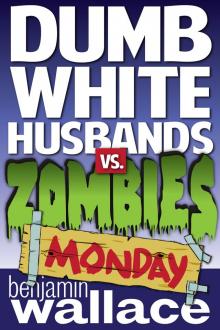 Dumb White Husbands vs. Zombies: Monday
Dumb White Husbands vs. Zombies: Monday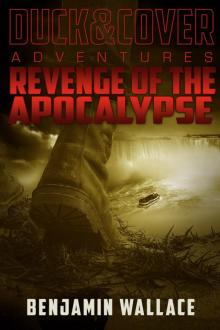 Revenge of the Apocalypse
Revenge of the Apocalypse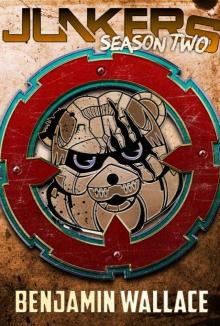 Junkers Season Two
Junkers Season Two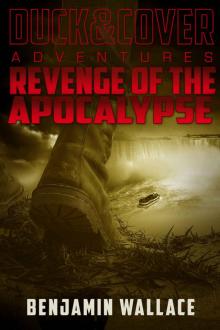 Revenge of the Apocalypse (A Duck & Cover Adventure Post-Apocalyptic Series Book 4)
Revenge of the Apocalypse (A Duck & Cover Adventure Post-Apocalyptic Series Book 4)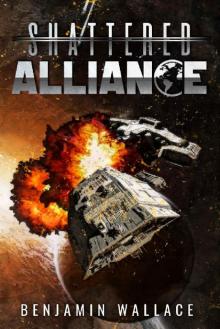 Shattered Alliance
Shattered Alliance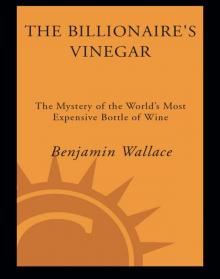 The Billionaire's Vinegar
The Billionaire's Vinegar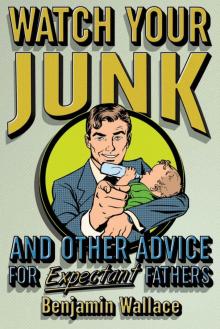 Watch Your Junk and Other Advice for Expectant Fathers
Watch Your Junk and Other Advice for Expectant Fathers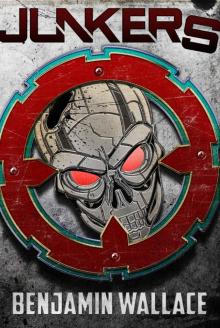 Junkers
Junkers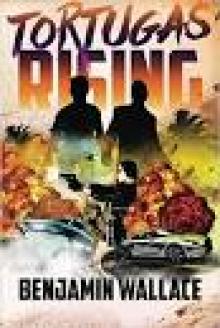 Tortugas Rising
Tortugas Rising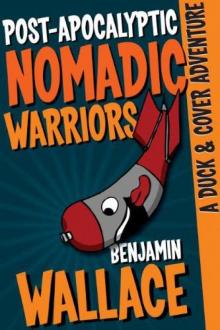 Post-Apocalyptic Nomadic Warriors
Post-Apocalyptic Nomadic Warriors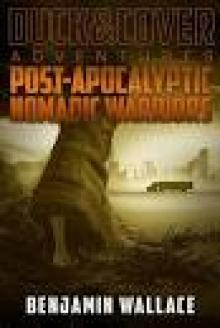 Post-Apocalyptic Nomadic Warriors (A Duck & Cover Adventure)
Post-Apocalyptic Nomadic Warriors (A Duck & Cover Adventure)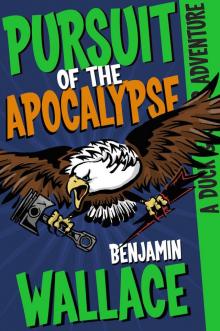 Pursuit of the Apocalypse
Pursuit of the Apocalypse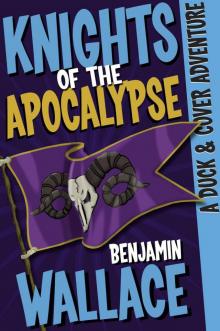 Knights of the Apocalypse (A Duck & Cover Adventure Post-Apocalyptic Series Book 2)
Knights of the Apocalypse (A Duck & Cover Adventure Post-Apocalyptic Series Book 2)